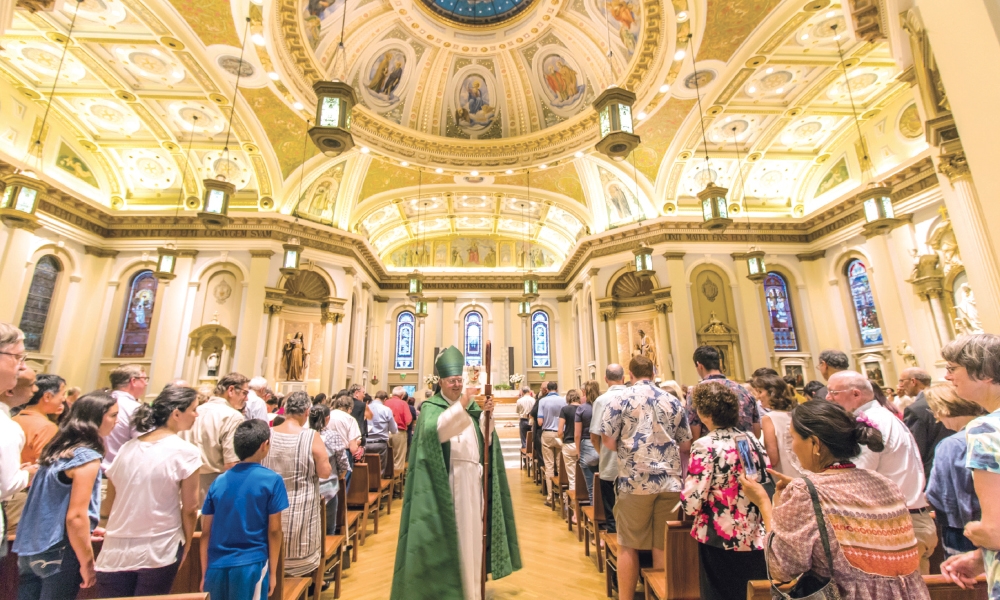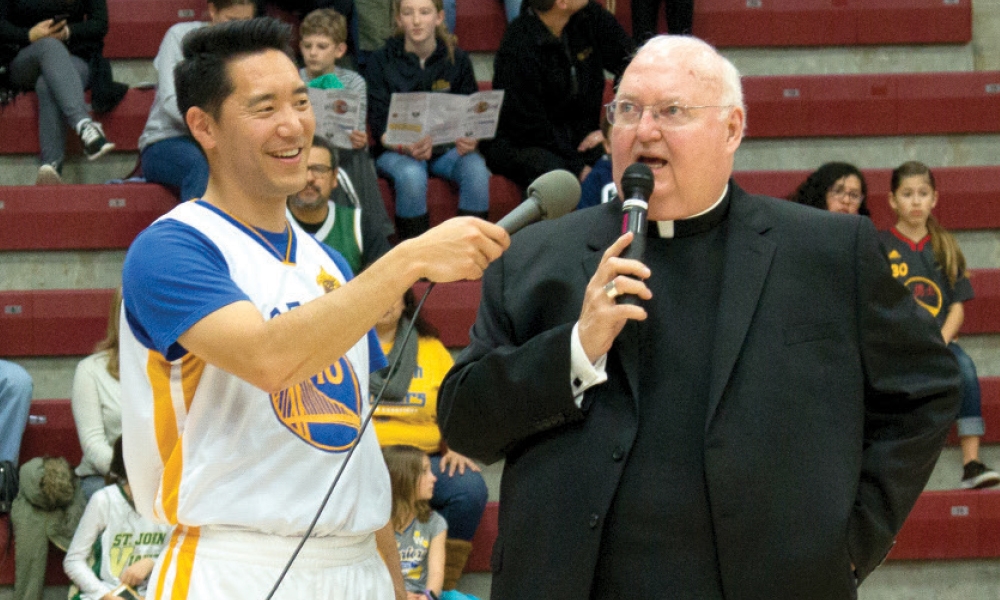
A Model of God the Father’s Goodness
Father Sergio Ovando Reflects on Bishop McGrath as a Priestly Mentor
Father Sergio Ovando Reflects on Bishop McGrath as a Priestly Mentor
A mentor is a person who guides and witnesses the progress of another person. In the life of priests, a mentor is more than that; a mentor is a person who does not teach abstract concepts but rather a concrete and unique way of living. As a mentor who guided and witnessed the progress of San José’s clergy, Bishop McGrath shared many teachings with his priests and emphasized a unique and concrete way of living out our vocations.
A mentor is a person who guides and witnesses the progress of another person. In the life of priests, a mentor is more than that; a mentor is a person who does not teach abstract concepts but rather a concrete and unique way of living. As a mentor who guided and witnessed the progress of San José’s clergy, Bishop McGrath shared many teachings with his priests and emphasized a unique and concrete way of living out our vocations.
Bishop McGrath guided us to be mentors. Mentorship, for him, was not so much in telling others what they should do, but listening carefully and taking a genuine interest in the person speaking, their problems, and their needs. He also encouraged us to trust the people. As a good son of the Second Vatican Council, PJ believed in the importance of the role of each person’s conscience in all things. The greatest gift of Bishop PJ’s mentorship to priests that will remain with us is the lesson to trust the people. This is because trusting someone changes the person, similarly to how mercy changes them.
The bishop taught that people’s greatness does not consist of titles or social position but in the fact that every human being is made in the image of God. This conviction in no way diminished his interest in the intellectual formation of the clergy at an advanced level. Bishop McGrath promoted the pursuit of advanced degrees, including at least four doctorates in ecclesiastical studies, amongst the priests from universities in both Rome and the United States. At the same time, informally, he constantly invited all to read, learn, and stay informed continuously.
Another one of Bishop McGrath’s greatest lessons, one of friendship, was implicit in how almost all priests and many lay people referred to him as ‘PJ.’ This nickname further inspired trust and closeness, but it was also a poignant illustration of Bishop PJ’s belief that someone’s greatness does not derive from social, religious, or political titles or even positions but from the person himself responding to God’s grace.
Without a doubt, I was most transformed by his insistence on goodness, a goodness that reflects the goodness of God the Father. He constantly repeated the gospel teaching where Jesus says: “I was hungry, and you gave me food….” (cf. Mt 25:35-40). He referenced mystics like Saint John of the Cross, who said, “In the twilight of our lives, we will be judged in love.” This kindness leads to finding what is good in every human being and acting accordingly. Bishop PJ taught me never to fear being excessive in kindness, even when many do not approve or understand it.
Finally, Bishop McGrath modeled gratitude in many ways. He lived believing that everything is grace and that having gratitude shows our appreciation for all that we receive from others, no matter how insignificant it may seem. The day before he died, he video-called his family members and friends and thanked each of us for everything that each had done for him. Bishop PJ died as he lived.
Father Sergio Ovando is currently assigned to Saint Catherine of Alexandria parish.


